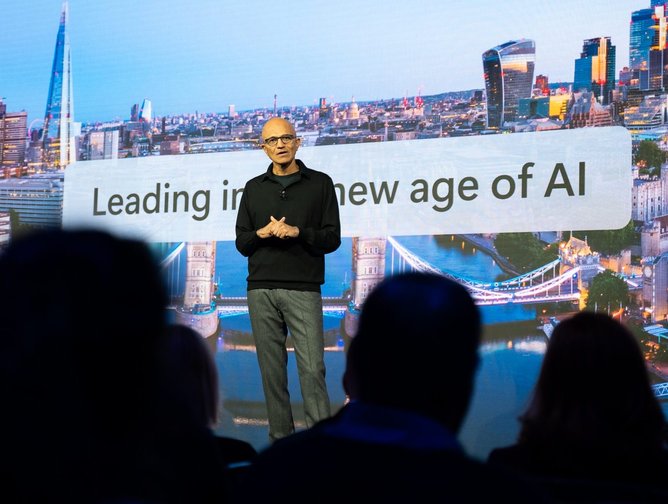
Microsoft platform expands AI possibilities (image credit: Microsoft)
Microsoft launches platform allowing businesses to create autonomous AI programs for routine tasks, as pressure mounts for returns on heavy AI investments
The automation of business processes has evolved from simple rule-based systems to increasingly sophisticated AI solutions across the world.
However, traditional automation requires humans to define exact steps for each task, limiting its application to predictable scenarios.
Yet with the emergence of AI-powered automation, potential to handle complex, variable tasks with minimal human oversight is increasing.
According to the International Data Corporation, global AI spending is expected to more than double between 2023 and 2026, reaching over US$300bn by 2026.
In another move to stay competitive in the technology market, Microsoft will release tools enabling customers to create autonomous AI agents.
These agents, called Copilot Studio, represent an advancement beyond current chatbots, operating with reduced human intervention that can handle client queries, identify sales leads and manage inventory.
Microsoft’s AI technology implementation
According to Reuters, Microsoft says its customers can use Copilot Studio – a low-code platform designed to help users create and manage custom AI assistants – to create such agents in public preview.
It is using several AI models developed in-house and by OpenAI for the agents.
This platform is designed to democratise the creation of AI agents, making it accessible to users without extensive programming knowledge.
Copilot Studio utilises a combination of Microsoft’s proprietary AI models and technology from OpenAI, allowing businesses to create sophisticated AI agents capable of handling complex tasks with minimal human oversight.
One of the key features of Copilot Studio is its ability to connect to various data sources through prebuilt or custom plugins.
This flexibility enables users to create and orchestrate sophisticated logic, ensuring that their AI agents are both powerful and intuitive.
For instance, an AI agent could be configured to analyse market trends, predict demand fluctuations, and automatically adjust inventory levels in a supply chain management scenario.
The platform’s low-code experience puts the power of AI at users’ fingertips, making it possible for a wider range of employees to contribute to the development of AI solutions.

CEO and Chairman of Microsoft, Satya Nadella, presenting a keynote in London as part of Microsoft’s AI Tour
This approach could potentially accelerate digital transformation efforts within companies, as it reduces the reliance on specialised AI developers.
Copilot Studio also offers the ability to create ‘autonomous triggers’, according to Microsoft.
These allow AI agents to automatically respond to signals across a business and initiate tasks without human input.
For example, an agent could be configured to react to events from various tools, systems, and databases, or even be scheduled to run at specific intervals.
Market response, adoption and challenges
While the potential of Copilot Studio is significant, its adoption faces challenges typical of new, transformative technologies.
The limited progress in existing Copilot adoption, as reported by Gartner, underscores the need for comprehensive change management and training strategies within organisations.
Companies looking to implement Copilot Studio will need to navigate the complexities of integrating these AI agents into their existing workflows.
This involves not only technical considerations but also ensuring that employees are comfortable working alongside AI assistants.
The transition to an AI-augmented work environment, generally worldwide, requires a shift in mindset and potentially new skills for many workers.

Microsoft’s corporate Vice President of business and industry Copilot, Charles Lamanna
However, the potential benefits of successful implementation are substantial.
AI agents created through Copilot Studio could significantly improve efficiency, reduce operational costs and free up human workers to focus on more strategic, creative tasks.
Charles Lamanna, Microsoft’s corporate Vice President of Business and Industry Copilot, explains the vision: “Every employee will have a Copilot, their personalised AI agent and then they will use that Copilot to interface and interact with the sea of AI agents that will be out there.”
credit: kitty wheeler


